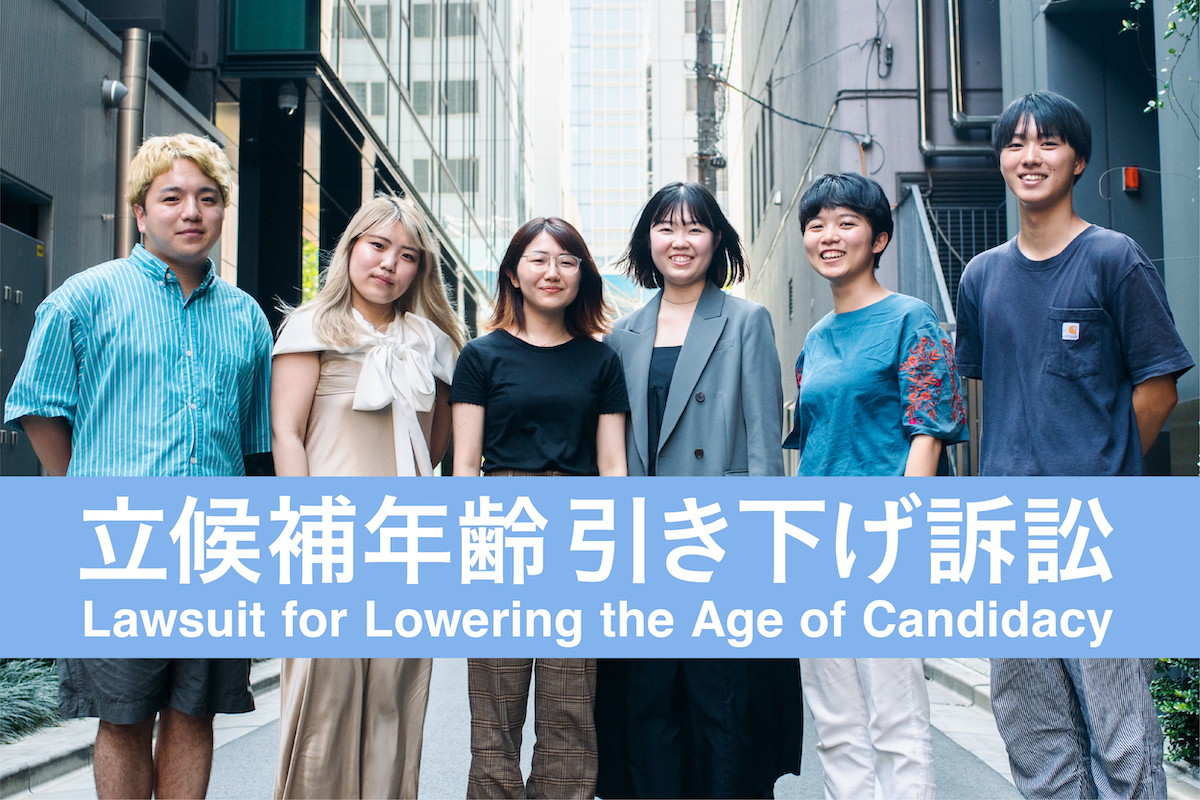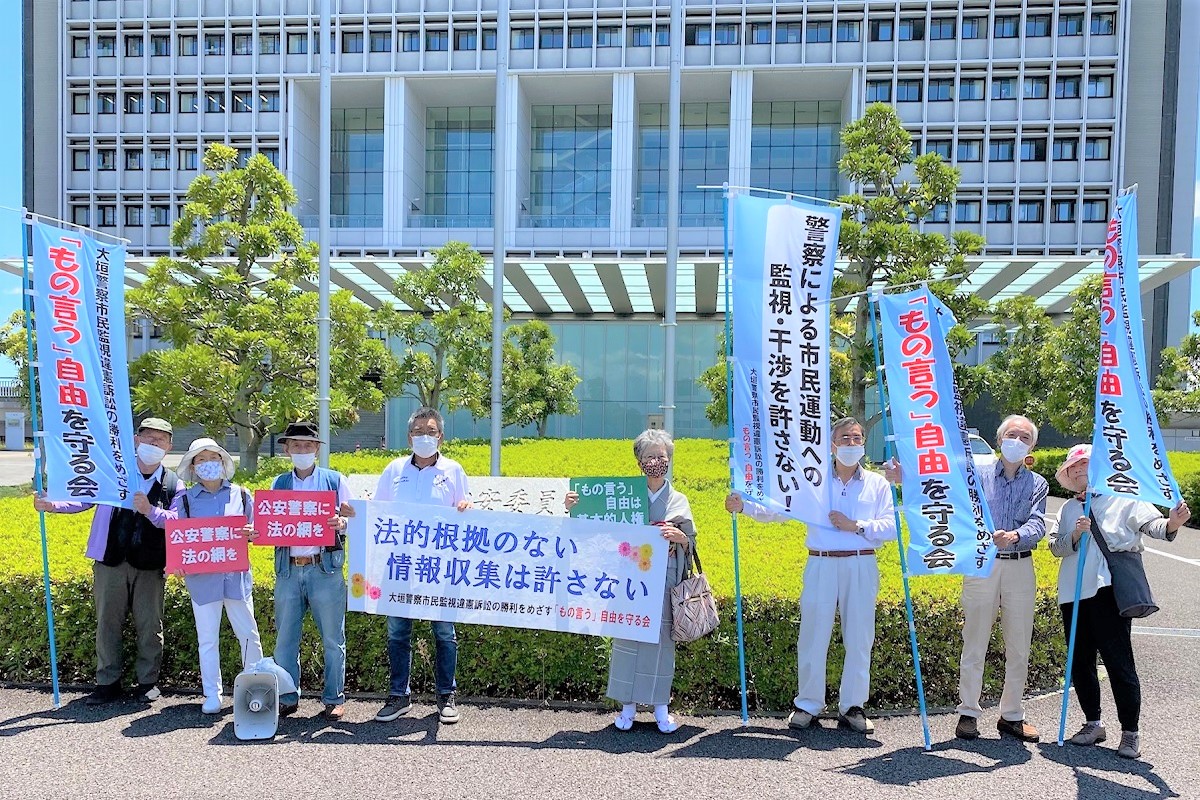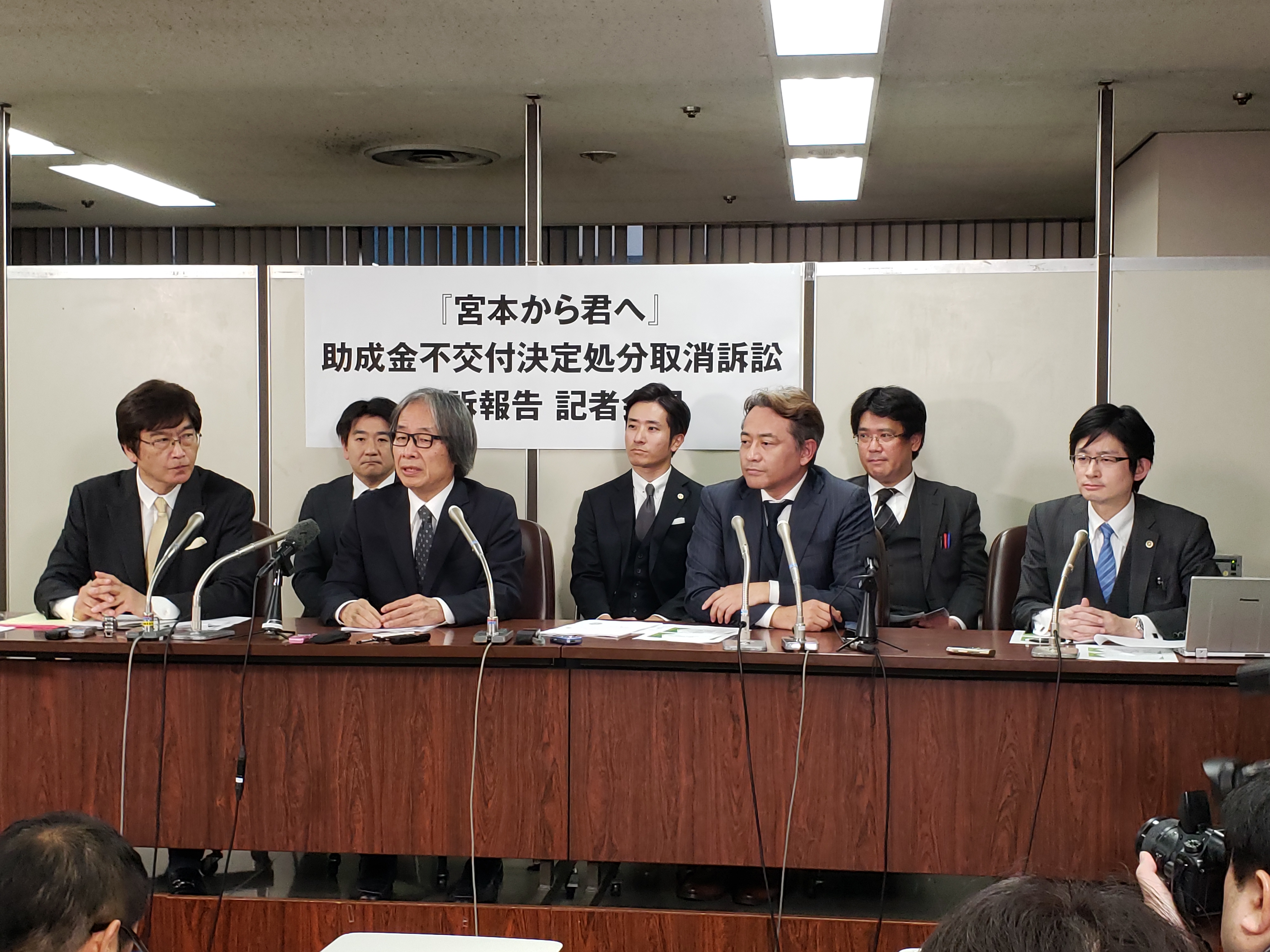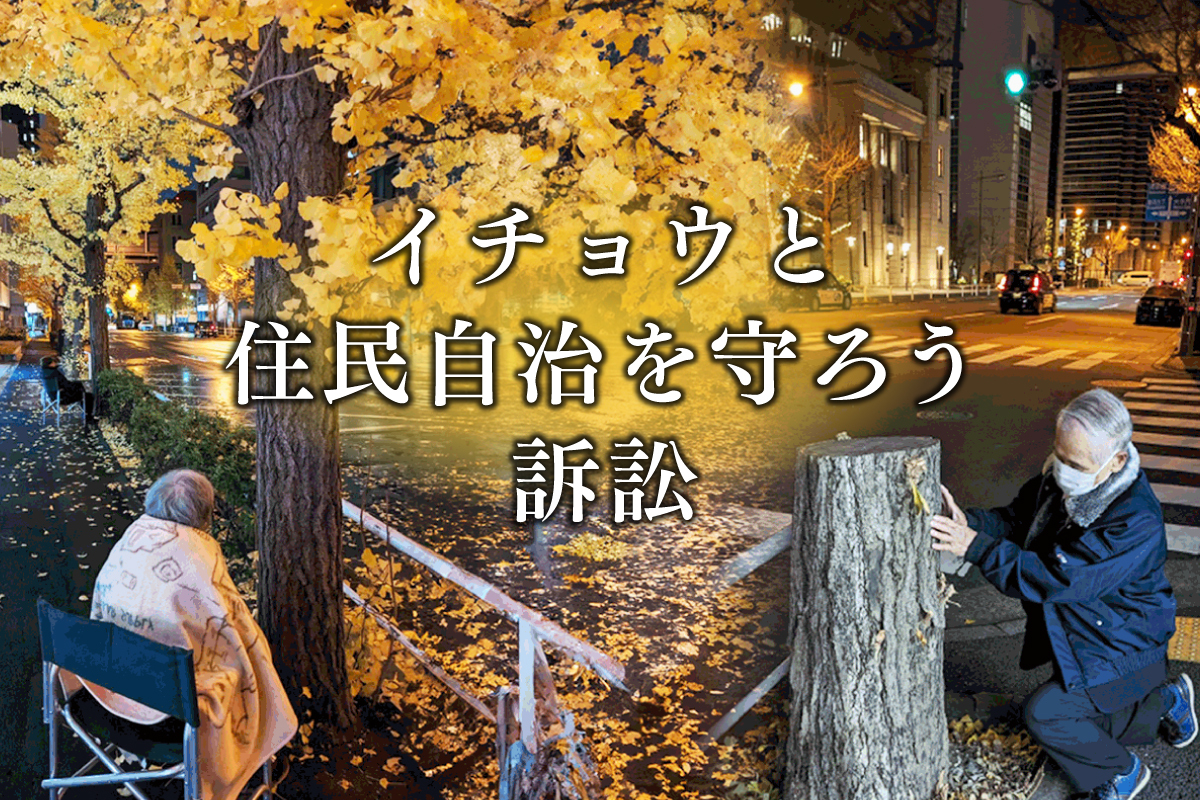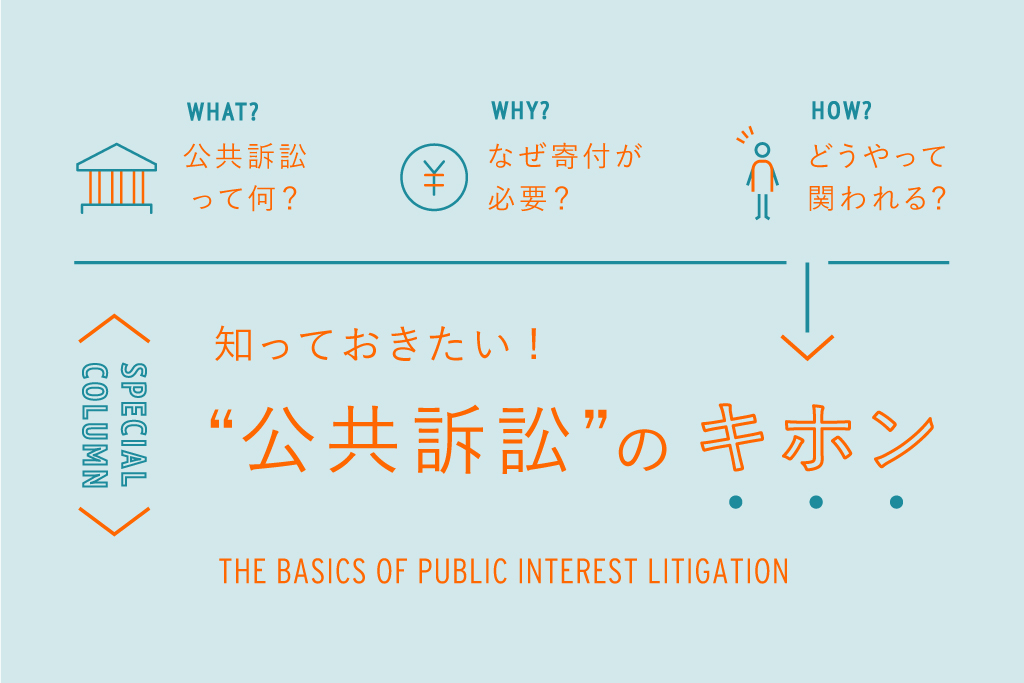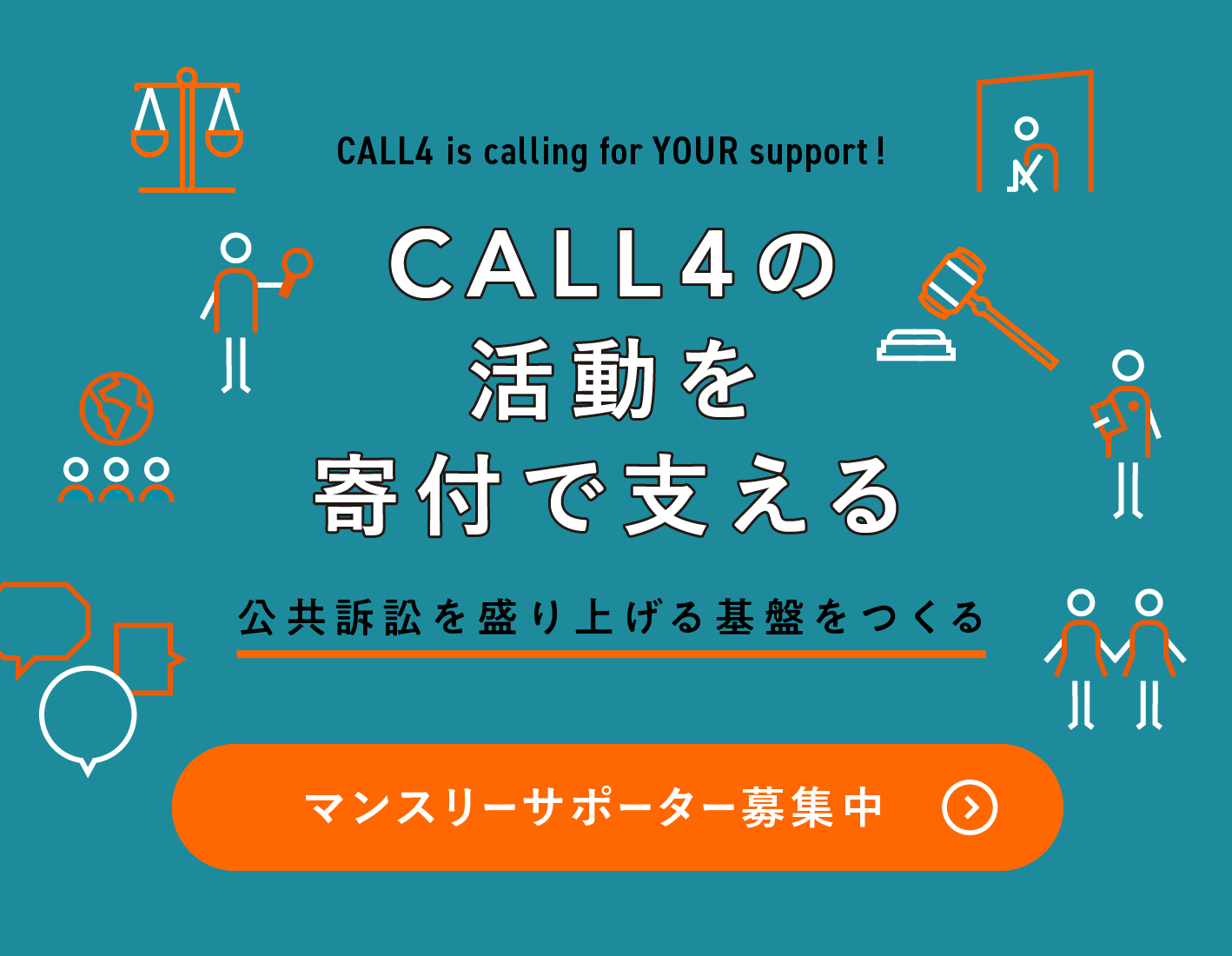県知事の公務での護国神社参拝取りやめをー政教分離原則の違反を問うー Stopping the Governor’s Official Visits to Gokoku Shrine — Challenging Violations of the Principle of Separation of Religion and State
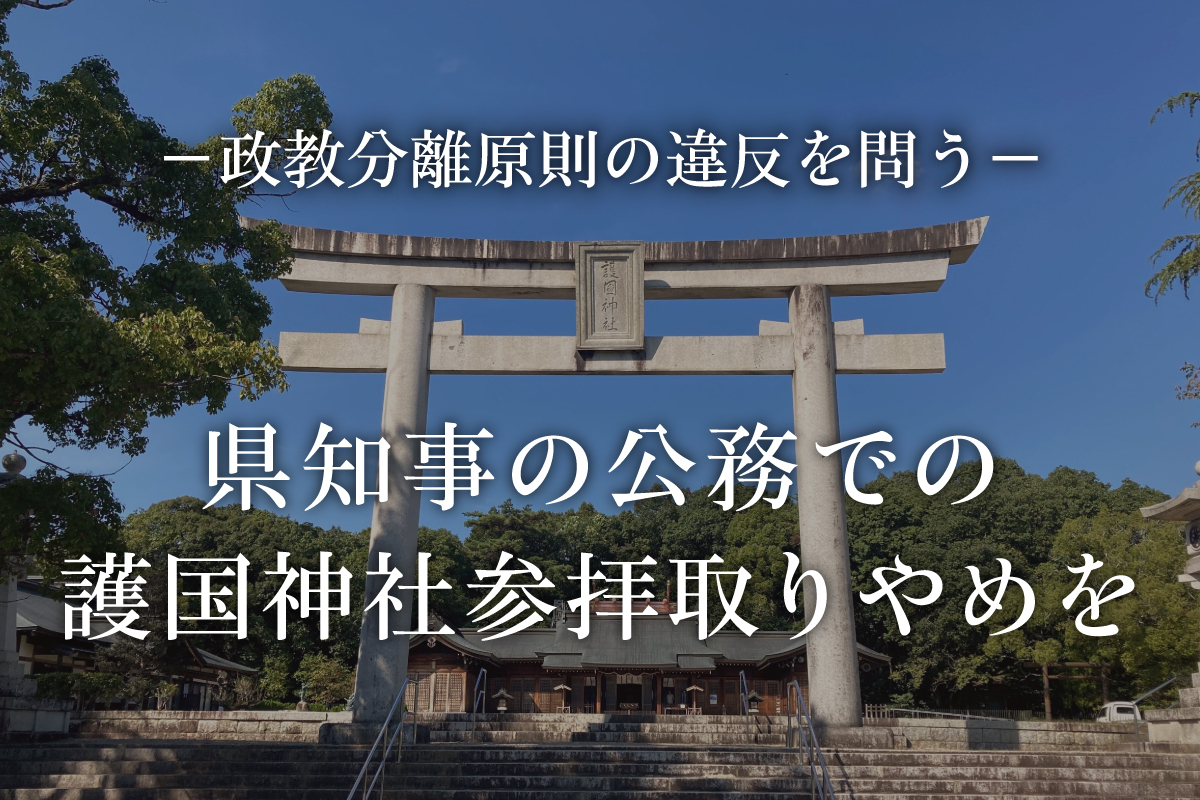
国と宗教の関わり合いに一定の限度を設ける「政教分離原則」。この訴訟で問う対象は、山口県知事による山口県護国神社の慰霊大祭への公務参拝です。戦前の軍国主義体制を支えていた護国神社に、公費を用いて参拝を行うことが、政教分離原則に反していると問うことで、個人の信仰が抑圧されたり強制されたりしない社会を実現します。 The ”principle of separation of religion and state” establishes a certain limit on the interconnection between the state and religion. The focus of this lawsuit is the official visits by the Governor of Yamaguchi Prefecture to the memorial festivals at Yamaguchi Gokoku Shrine. By questioning the use of public funds for such visits which historically supported the pre-war militaristic regime, this lawsuit contends that it violates the principle of separation of religion and state. This legal action aims at realizing a society where individual freedom of beliefs are not constrained or coerced.
はじめに
日本国憲法
20条
1項 信教の自由は、何人に対してもこれを保障する。 いかなる宗教団体も、国から特権を受け、又は政治上の権力を行使してはならない。
2項 何人も、宗教上の行為、祝典、儀式又は行事に参加することを強制されない。
3項 国及びその機関は、宗教教育その他いかなる宗教的活動もしてはならない。
89条
公金その他の公の財産は、宗教上の組織若しくは団体の使用、便益若しくは維持のため、又は公の支配に属しない慈善、教育若しくは博愛の事業に対し、これを支出し、又はその利用に供してはならない。
国と宗教の関わり合いに一定の限度を設ける「政教分離原則」。
戦前の歴史の反省から取り入れられたこの原則について、日本史や公民などの授業で聞いたことがあるという人も、法学部で判例を勉強したことがある人もいるでしょう。
しかし、身近に感じる人は少ないのではないでしょうか。
この訴訟は、政教分離原則に違反する行為を問うことで、政教分離原則が守られるように、そして、個人の信教、また思想や良心が抑圧されたり強制されたりしないようにするための訴訟です。
事案の概要
山口県知事が山口県護国神社の慰霊大祭に公務として参拝し、公費を費やしていること
山口県知事は、毎春・毎秋、山口県護国神社の慰霊大祭に、公務として公費を費やして参拝しています。知事らの公務参拝は、年に2回行われ、各4名が参拝しています。昨年、春の1回分の交通費は990円でした。
護国神社は、靖国神社と同じく、国家(天皇)のために亡くなったとする人を祀る神社であり、戦前には、国家神道、すなわち国家と宗教が結びつき軍国主義体制を支えていた宗教的軍事施設です。
その神社に公務、すなわち、私人としての立場ではなく自治体の代表として参拝している点に、政教分離原則違反の問題があります。
また、他の府県に目を向けると、政教分離原則の違反を理由として、護国神社への参拝を行なっていない府県があります。
実際に、2021年に原告が行なった全国調査では、護国神社のある道府県のうち、39道府県が回答、うち参拝していないのは32道府県、更にそのうち参拝要請があるにもかかわらず参拝しない理由として憲法違反の疑いがあると回答したのが7府県でした。
そんな中、山口県では、県民からの公務参拝停止の度重なる要請にも関わらず、護国神社への参拝が違憲であるとの裁判所の判断がないという理由で公務参拝を行っているのです。
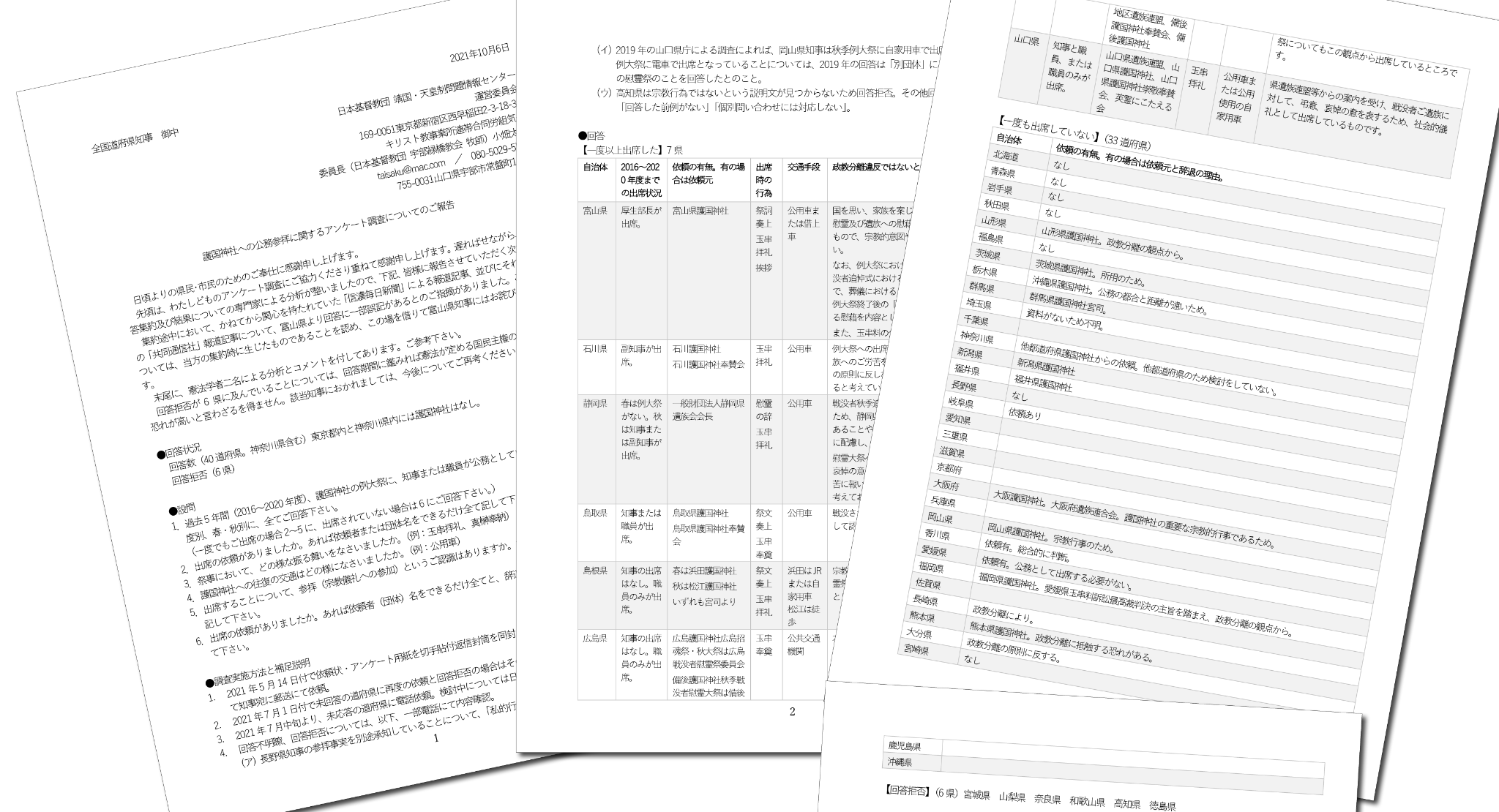
▲原告が2021年に実施した公務参拝に関する全国調査の結果報告書。
訴訟に至る経緯〜信教の自由を求める闘いの歴史〜
上記の山口県知事の行為に対して、訴訟提起に至るには、ある訴訟から続く、信教の自由を求める闘いの歴史がありました。
その訴訟とは、1973年に提訴された、山口自衛官合祀拒否訴訟(以下「合祀拒否訴訟」)です。
合祀拒否訴訟は、公務死した自衛官の、妻の中谷康子さんが拒否したのにもかかわらず、山口県護国神社と自衛隊が共謀し、夫を勝手に合祀したことの違憲・違法を問うた裁判でした。
この訴訟では、1審、2審では中谷さんの宗教上の人格権が認められ勝訴したものの、1988年に最高裁で逆転敗訴しており、中谷さんの夫は合祀されたままとなっていました。
最高裁では、①合祀行為が国の行為とされなかったこと、②自己の信仰生活が害されたことによる不快感に対して損害賠償などを認めることは、かえって相手方の信教の自由を害することになるため、合祀を望んだ別の遺族や山口県護国神社に対して原告は「寛容」であるべきという理由で原告敗訴とされました。
この最高裁の不当敗訴判決を受けて立ち上げられたのが、「『合祀いやです』少数者の人権を求める会」(以下、「求める会」)です。「求める会」は、思想・良心(憲法第19条)と信教(憲法第20条)の自由の実現を期して、毎年、最高裁判決の日近くで「自衛官合祀拒否訴訟最高裁不当判決抗議集会」を開催するとともに、合祀取り下げを求める活動を行なってきました。そして近年は、様々な内心の自由の侵害行為を監視し是正する活動も行っています。
中谷さんの闘いは、山口県が、中谷さんの夫を護国神社に合祀したことが、国による個人の信教の自由の侵害であると訴えるものでした(最高裁では認められず)。
山口県知事の公務参拝行為も、国が宗教との関係性を踏み越えるという点で個人の信教の自由を侵害しうるものであり、加えて、参拝の対象は山口県護国神社によって、中谷さんの夫を含め祀られている英霊であり軍神です。
そのため、知事の公務参拝行為は、中谷さんの闘いと、その後も中谷さんと共に合祀取り下げを求め続けてきた「求める会」の思いを踏みにじるものであり、原告にとって到底放置してはおけないものでした。
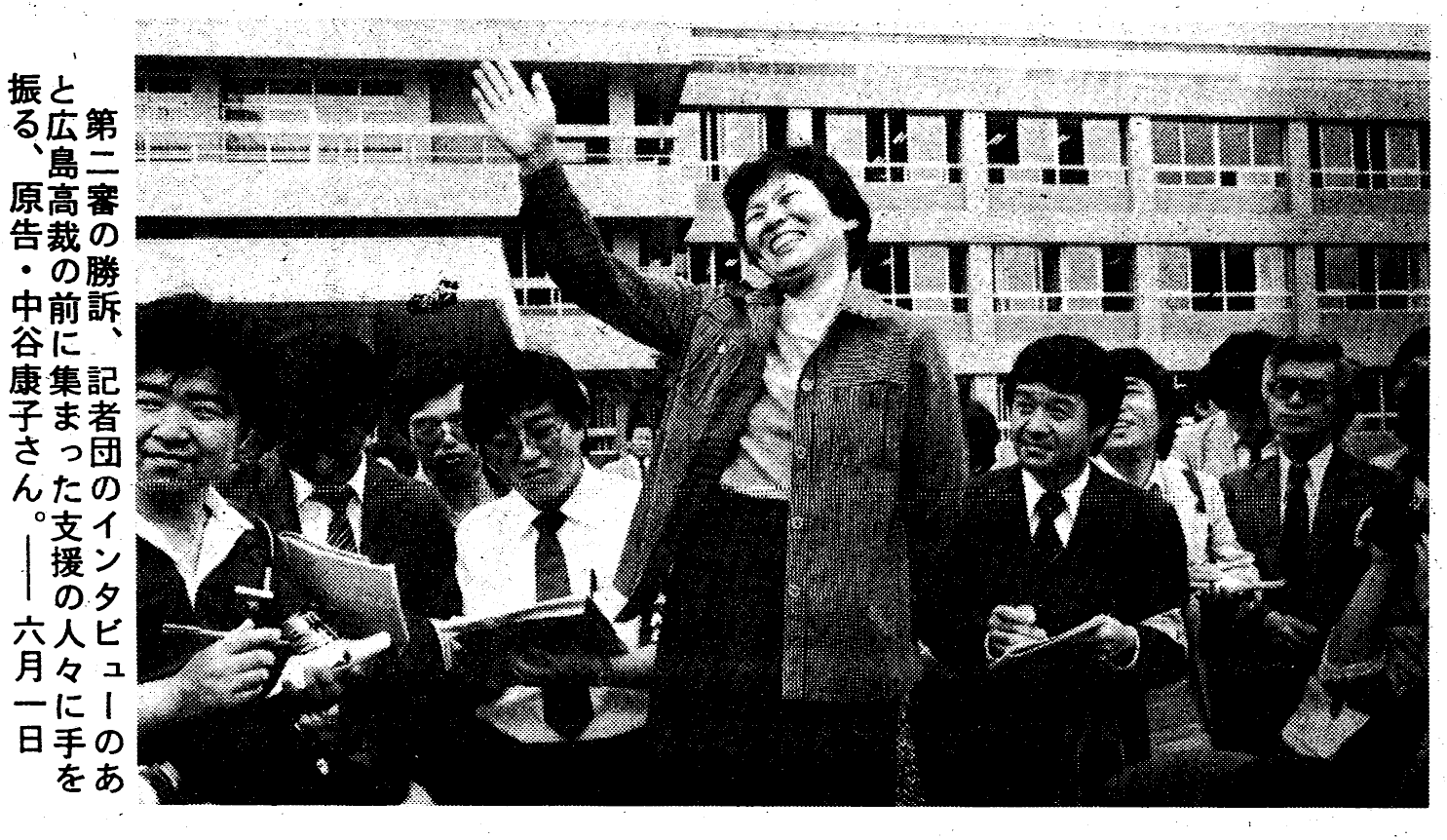
▲『自衛官合祀拒否訴訟全国連絡会ニュース』1982年9月21日
公務参拝行為に対して、原告らは、知事に参拝停止の要望書を出すなど停止に向けた活動を行いましたが、知事が参拝を停止することはなかったので、訴訟に踏み切ることにしたのです。
原告が本訴訟を通じて実現したいこと
訴訟を通して、護国神社や靖国神社の正体を人々に知らせ、内心の自由を考える機会を提供することで、一人ひとりが「自分」を取り戻し、ひいては蔓延している内心の自由の侵害の是正へと繋がっていくことを、そして憲法前文が謳う「平和を愛する諸国民の公正と信義に信頼」をおく「国民」となることを期待しています。
具体的には、「英霊」や「遺族」という縛りによって靖国神社や護国神社に囚われている人々の解放であり、広くは未だ続く各地での自治会による神社費の徴収、また法令よりも職務命令を優先する公務員の有り様の是正です。更にそれは少し大げさに言えば、成功や所有が至上の価値とされる世界に囚われた人々の解放の実現です。
これまでの訴訟
直近の訴訟との違い、本訴訟の意義
政教分離原則違反を問う訴訟はこれまでにも提訴されてきており、愛媛玉串料訴訟、空知太神社事件、孔子廟訴訟で違憲判決が出されています。
これらの訴訟を通して、国または地方自治体の政教分離原則違反行為へのチェックがなされ、適切な距離を保つようにされてきたのです。
直近の政教分離訴訟としては、安倍首相靖国参拝違憲訴訟、天皇代替わりに係る即位・大嘗祭違憲訴訟と主基田違憲訴訟がありますが、一つには被侵害利益の壁、すなわち、行政の行為が憲法や法律に反していることだけではなく、その行為によって自らが身体的・精神的な損害を受けたことを、裁判所が権利侵害として認めないこと、いま一つには裁判例の壁、すなわち、過去に政教分離違反によって個人の権利侵害が判断がされた裁判例が殆どないこと、によって厳しい闘いを強いられています。
一方で、行政の行為の違法性を問う手段としては、地方自治体のお金の使途の違法性を問う住民訴訟という手法があり、この場合、被侵害利益の壁を超えることが出来るのです。
今回、「住民訴訟が提起できる」、「過去に同様の行為の違憲性が争われた裁判例がない」、「過去の政教分離訴訟の判決に照らして違憲判断を裁判所が成し得る可能性が高い」という状況が揃ったため、内心の自由の確立のために有効な訴訟だと考え提訴を決意しました。
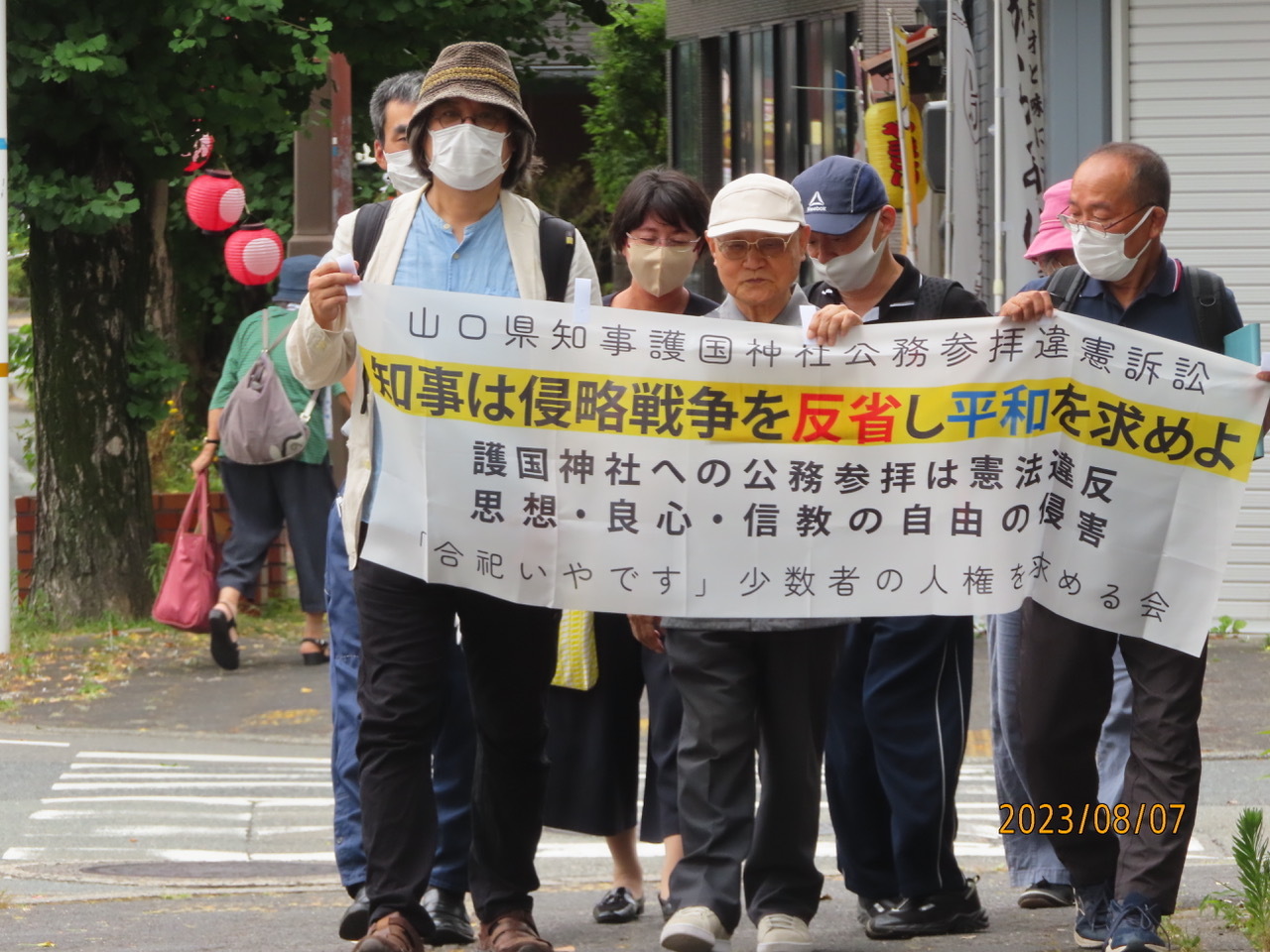
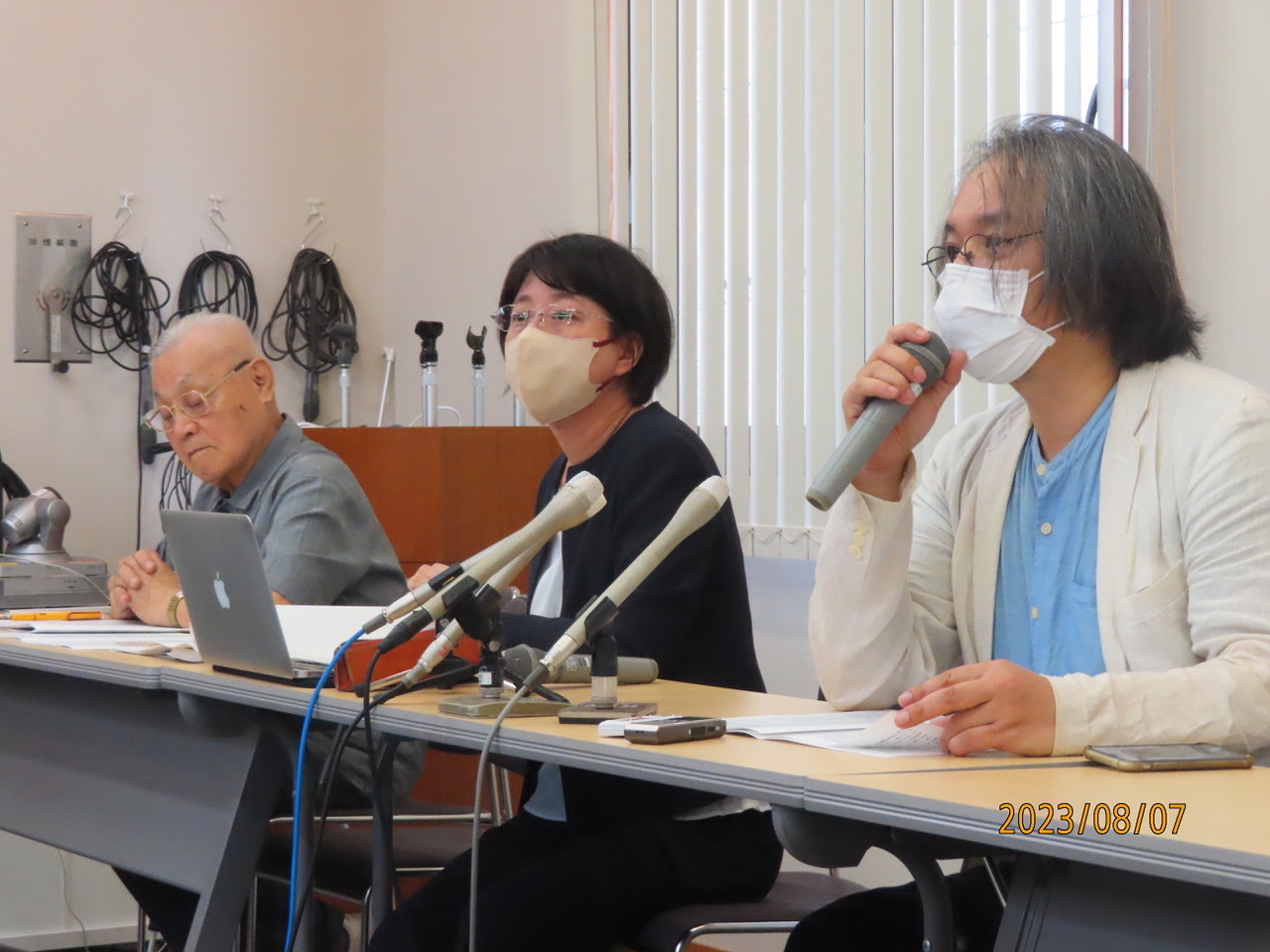
寄付の使いみち
① 証人等の交通費 10万円
② 意見書費用 20万円
③ 弁護士費用 50万円
④ その他(訴訟に関連するもの) 20万円
合計100万円
上記は、第一審(山口地裁)の予算概算です。控訴審(広島高等裁判所)は、改めて目標を設定して取り組む所存です。原告は山口県民であるため、控訴審の場合は原告の交通費補助も予算化できれば幸いです。
しかし、それ以前に現在は弁護士支援に当てたく、できれば弁護団も組織したいと考えています。そのための資金繰りを優先します。
原告の思い
原告8名のうち、わたし(小畑太作)について記します。
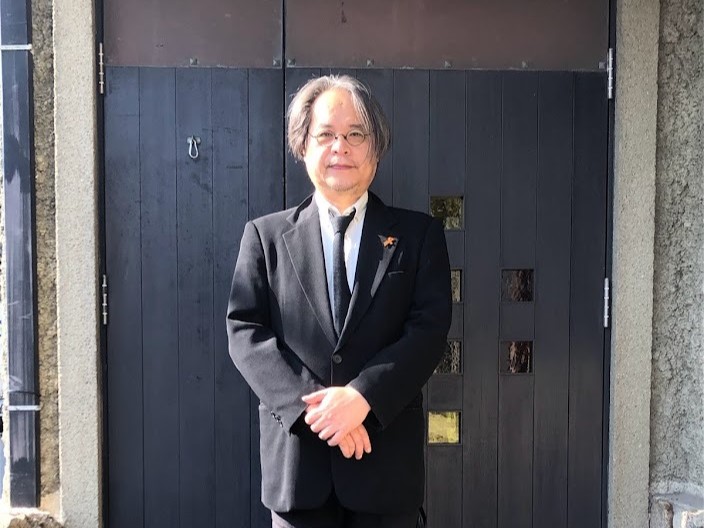
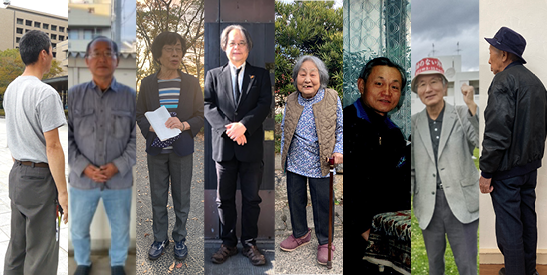
わたしは、子どもの頃から、学校や地域が様々なものを押し付けてくることに疑問と反発を覚えていました。自由を求め続け、紆余曲折ありましたが、キリスト教に道を見出し、1997年に牧師になりました。
2003年に山口県に来て、同信で山口自衛官合祀拒否訴訟(以下「合祀拒否訴訟」)の元原告の中谷康子さん達と出会い、その自由への闘いを知り、関わるようになりました。そして今年2023年から、同訴訟の後を継ぐ「求める会」の代表兼事務局を務めています。
基本的人権である、信教の自由(憲法第20条)と、思想・良心の自由(憲法第19条)は、この国がかつて為した侵略戦争への反省により設置されたものであり、これを侵害する行為は基本的人権の侵害であり憲法違反です。
また、それを侵害することは、かつての侵略戦争を肯定することをも意味します。
靖国神社は、護国神社と同じく、かつての侵略戦争を正当化し美化しています。従って、国会議員らの靖国神社参拝行為に対しては、かつての被侵略国から抗議の声が上げられます。ところが、日本国民の殆どは、自らの代表のその行為を看過しています。その結果、国際社会における日本国民に対する信頼を阻害する行為ともなっています。
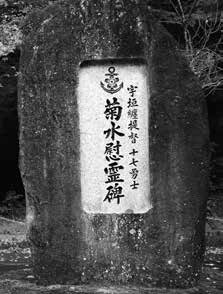
▲「靖国神社に英霊として祀られている宇垣纏(まとめ)中将は「玉音放送」後の8月15日夕刻、「神州の不滅を信じ、気の毒なれど余の供を命ず」と部下を道連れにして大分の海軍飛行場から特攻機で沖縄方面に向けて出撃し死んだ。写真は、そうして死んだ若者を祀る岡山県護国神社参道に建てられた慰霊碑(撮影 難波幸矢)」
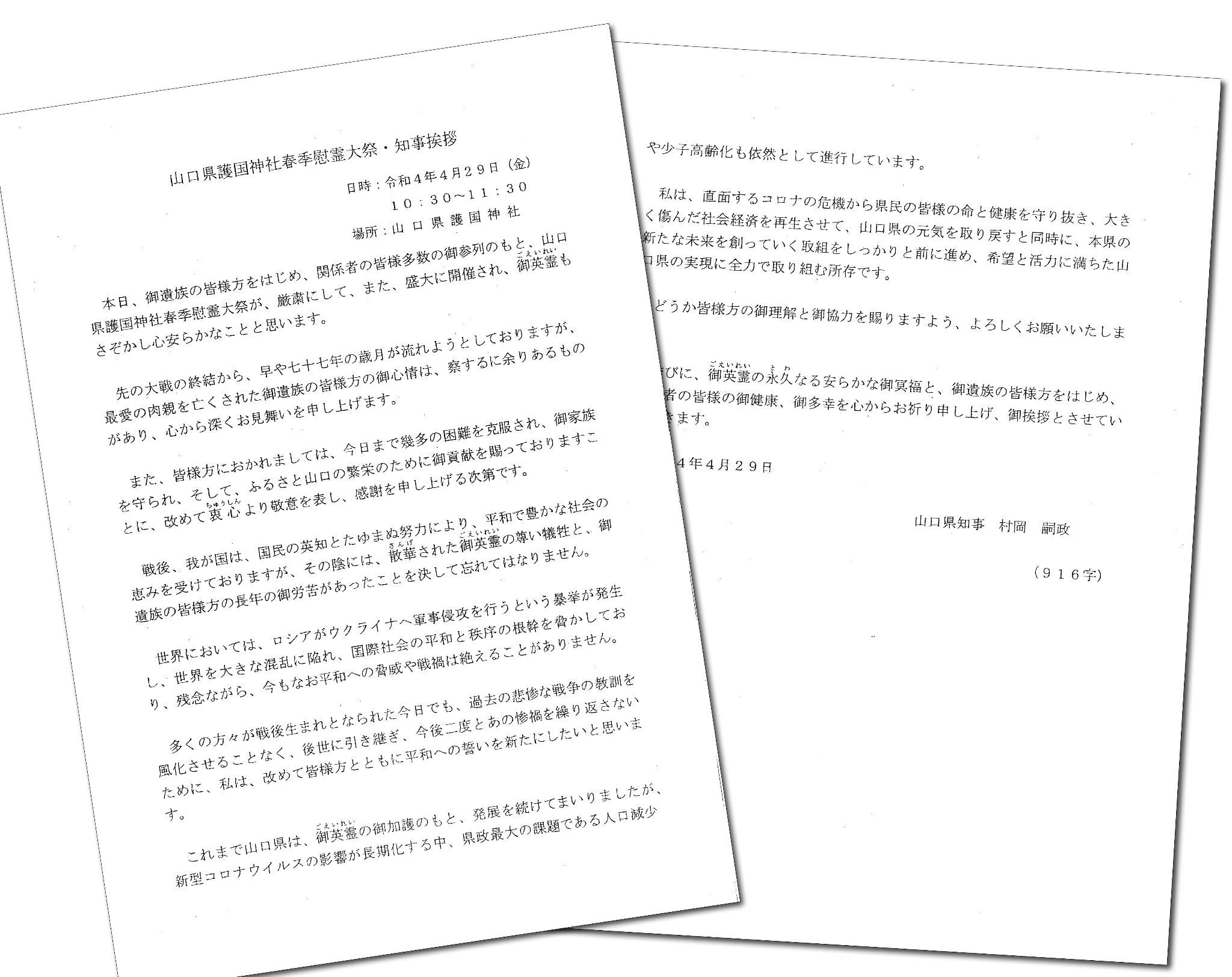
▲山口県護国神社慰霊大祭での山口県知事の挨拶文。戦争被害者を繰り返し「英霊」と呼び顕彰している。
不信は新たな不信を生じ、ついには敵意へと至るのです。その結果が、留まることを知らないこの国の軍事化です。
ところが、繰り返しますが、日本国民の多くは、かつての侵略戦争の正当化と美化を主張する、国会議員らの靖国神社参拝に対して殆ど関心を持たないままです。
また、こうした世情は、これまでも、そして今も、提起されてきたいくつかの政教分離訴訟に対する裁判所の判断にも現れてしまっています。
思想・良心・信教の自由を実現することこそが、真の平和を実現することにつながるのだと思います。実際、戦争とは、その自由が制限されることによってのみ、遂行可能となるのです。
代理人コメント
山口県では、県民からの公務参拝を控える要請にも関わらず、護国神社への参拝が違憲であるとの裁判所の判断がないという理由で公務参拝を行ったため住民訴訟をすることになりました。
明確に違法という裁判所の判断がないからやってもいいという山口県の考えは是正されるべきであり、この訴訟がその一つの契機となってほしいと思い受任しました。
担当弁護士
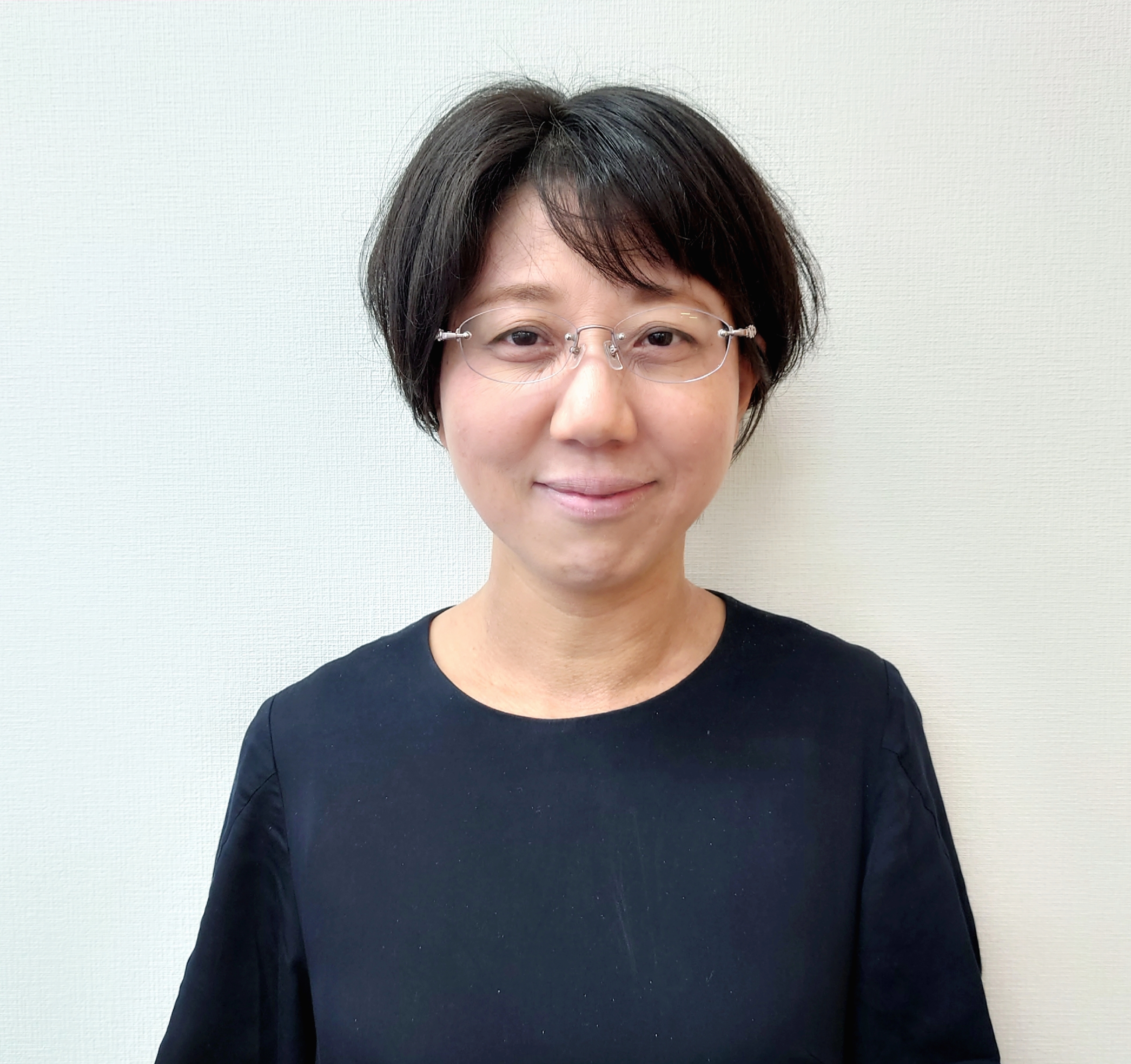
田川 瞳 福岡県弁護士会 弁護士法人ピース 門司中央法律事務所
おわりに
皆様の支援が、原告や代理人弁護士が活動を継続していく大きな力になります。
内心の自由の侵害は目に見えず分かり難いし、且つ慣らされてしまっているのかもしれませんが、気が付いたときには手遅れなのです。戦争への道を平和への道へと変えましょう。
Introduction
Exploration of the principle of separation of religion and state
The Constitution of Japan
Article 20
1. Freedom of religion is guaranteed to all.No religious organization shall receive any privileges from the State, nor exercise any political authority.
2. No person shall be compelled to take part in any religious act, celebration, rite or practice.
3. The State and its organs shall refrain from religious education or any other religious activity.
Article 89
No public money or other property shall be expended or appropriated for the use, benefit or maintenance of any religious institution or association, or for any charitable, educational or benevolent enterprises not under the control of public authority.
The "principle of separation of religion and state" sets a certain limit on the intertwining of the state and religion. Some may have encountered this principle in classes such as Japanese history or civics, while others might have studied legal cases in college.
However, for many, this principle may not feel particularly close to their daily lives.
This lawsuit aims to address actions that violate the principle of separation of religion and state. It seeks to ensure the adherence to this principle and, more importantly, to prevent the constraints or coercion of individual freedom of beliefs. Even though many might not be familiar with this principle, this lawsuit underscores its importance in safeguarding personal beliefs and preventing infringement.
Overview of the litigation
The Yamaguchi Prefectural Governor's official visits to the Gokoku Shrine and the expenditure of public funds
The governor of Yamaguchi Prefecture makes official visits to the Gokoku Shrine's memorial festivals every spring and autumn, expending public funds for this purpose. These official visits by the governor occur twice a year, with four individuals participating in each visit. Last spring, the transportation costs for one visit for one person amounted to 990 yen.
Similar to Yasukuni Shrine, Gokoku Shrine is a religious institution that honors individuals believed to have died for the nation (or the Emperor). Before World War II, it served as a religious institution intertwined with State Shinto, supporting a militaristic regime under the unity of state and religion.
The issue here is whether the governor’s visits to the shrine in an official capacity, representing the local government rather than as a private individual, violates the principle of separation of religion and state.
When looking at other prefectures, some refrain from visiting Gokoku Shrine citing violations of the principle of separation of religion and state as the reason. In the nationwide survey conducted by the plaintiffs in 2021, responses were received from 39 prefectures where, among them, 32 prefectures stated they did not visit the shrines. Moreover, seven prefectures, despite receiving visit requests, cited constitutional concerns as reasons for not visiting.
Despite such circumstances, in Yamaguchi Prefecture, the governor continues official visits to Gokoku Shrine, justifying the actions by stating that there has been no court judgment declaring the visits unconstitutional in spite of the public demand to refrain from official visits.

▲Report on the Result of the Nationwide Survey in 2021 conducted by the plaintiffs regarding the official visit
Background and History of the Lawsuit — A Struggle for Freedom of Religion
The origins leading to the filing of this lawsuit can be traced back to a historical struggle for freedom of religion. Specifically, it stems from the Self-Defense Forces Anti Joint Enshrinement Lawsuit initiated in 1973.
The Anti Joint Enshrinement Lawsuit revolved around the unconstitutional and unlawful act of the Yamaguchi Gokoku Shrine and the Self-Defense Forces conspiring to enshrine arbitrarily the deceased husband of Mrs. Yasuko Nakatani, even though she refused such enshrinement.
In this lawsuit, Mrs. Nakatani's religious and personal rights were acknowledged in the first and second instances, resulting in victory. However, in 1988, the Supreme Court overturned the decision, leading to a loss for Mrs. Nakatani. Consequently, her husband remained enshrined against her wishes.
The Supreme Court cited two main reasons for the reversal: 1) the enshrinement act was not considered a state action, and 2) recognizing damages, such as discomfort due to interference with one's own religious life, could harm the freedom of religion of the opposing party. Therefore, the court ruled against the plaintiff, asserting tolerance towards other bereaved families and the Yamaguchi Gokoku Shrine that opted for the enshrinement. While the case shares the theme of the infringement of freedom of religion by the state, it differs in that the present case is a citizen lawsuit, which does not involve infringed interests.
Following the defeat in the Supreme Court, the "Society for Seeking the Rights of Minority Individuals Saying 'No' to Joint Enshrinement" (hereinafter referred to as the "Seeking Society") was established. The "Seeking Society" annually holds a protest gathering called the "Protest Against the Unjust Supreme Court Decision on the Self-Defense Forces Anti Joint Enshrinement Lawsuit" near the anniversary of the Supreme Court decision. They also engage in activities advocating for the withdrawal of enshrinement. In recent years, they have expanded their efforts to monitor and correct various infringements on freedom of mind and beliefs.
Mrs. Nakatani's struggle was based on her assertion that Yamaguchi Prefecture's enshrinement of her husband at Gokoku Shrine constituted an infringement on the individual's freedom of religion by the state, a claim not acknowledged by the Supreme Court.
The governor's official visits to Yasukuni Shrine similarly have the potential to violate individual freedom of religion, as the state surpasses its relationship with religion. Furthermore, the shrine's enshrinement includes war heroes, including Mrs. Nakatani's husband, making it a shrine to war deities.
Therefore, the governor's official visits to the shrine not only disregard Mrs. Nakatani's struggle but also the ongoing efforts of the "Seeking Society" advocating for the withdrawal of enshrinement, and it represented an act that the plaintiffs could not ignore.

▲“Newspaper by the National Association for the Self-Defense Forces Anti Joint Enshrinement Lawsuit,” 1982 September 21.
In response to the official visits to Yasukuni Shrine, the plaintiffs made efforts in urging the governor to cease these visits, including submitting requests for the cessation of visits. However, as the governor did not stop the visits, the plaintiffs decided to take legal action.
Objectives of the Plaintiffs through this Lawsuit
Through the lawsuit, the plaintiffs aim to inform the public about the true nature of Yasukuni Shrine and Gokoku Shrine. They seek to provide an opportunity for individuals to contemplate their freedom of mind and beliefs, enabling each person to reclaim their sense of "self." Ultimately, they hope this process will contribute to rectifying the widespread infringement of freedom of mind.
Furthermore, the plaintiffs anticipate fostering a society where individuals, in line with the ideals expressed in the preamble of the constitution, become "citizens" who trust in the justice and integrity of peace-loving people.
Specifically, the objectives include the liberation of individuals confined by the official terms such as "war heroes" and "bereaved families" associated with Yasukuni Shrine and Gokoku Shrine. Additionally, they seek to address the issue of ongoing collection of shrine fees by local community associations and to correct the behavior of public officials prioritizing administrative orders over legal regulations. In a broader context, this can be seen as a way to realize liberation of individuals from the fixed ideologies of the superior values in success and possession.
Previous lawsuits
Differences from recent lawsuits and significance of this lawsuit
*Differences from recent lawsuits and the significance of this lawsuit
Lawsuits challenging violations of the principle of separation of religion and state have been filed before, and unconstitutional rulings have been made in cases such as the Ehime Tamagushi-ryo Lawsuit, the Sorachibuto Shrine Lawsuit, and the Confucius Temple Lawsuit.
Through these lawsuits, checks on violations of the principle of separation of religion and politics by the national or local governments have been established, ensuring that an appropriate distance is maintained.
Recent lawsuits related to the separation of religion and state include the Lawsuit against Prime Minister Abe's visits to Yasukuni Shrine, the Lawsuit regarding the Imperial succession and Daijosai, and the Sukiden Lawsuit. However, these face two significant challenges: the first is the barrier of the infringed interests, meaning that the court does not recognize the act by the administration as a violation of rights, even if it violates the constitution and law, unless it is the but-for cause of the plaintiff's bodily or mental damages. Another barrier is legal precedents, as there are few past cases where courts decided on the issue of whether individual rights infringement is due to a violation of the principle of separation of religion and state.
On the other hand, there is a method of addressing the illegality of the use of municipal funds through a citizen lawsuit to question the legality of the use of funds by local governments. In this case, it becomes possible to surpass the barrier of the infringed interests.
This time, the situation has aligned with "the ability to raise a citizen lawsuit," "the absence of past rulings on the unconstitutionality of similar acts," and "the high possibility that the court can make a judgment that declares unconstitutional based on past rulings on separation of religion and state lawsuits." Therefore, I have come to the conclusion that it is an effective means to file a lawsuit for the establishment of freedom of mind.


Use of donations
1. Transportation expenses for witnesses, etc. - 100,000 yen
2. Expert Opinion expenses - 200,000 yen
3. Legal fees - 500,000 yen
4. Other (related to the lawsuit) - 200,000 yen
Total: 1,000,000 yen
The above is an approximate budget for the first instance at the Yamaguchi District Court. For the appeal instance at the Hiroshima High Court, we plan to set a new target and address it accordingly. Since the plaintiffs are residents of Yamaguchi Prefecture, we hope to budget for the transportation expenses of the plaintiffs in the case of an appeal if possible.
However, currently, we prioritize allocating funds to legal fees, and ideally, we are considering organizing a legal team. Therefore, we prioritize funding for this purpose for now.
Plaintiff's thoughts

I will provide information about myself (Taisaku Obata) among the eight plaintiffs.
Since childhood, I have harbored doubts and resistance towards the imposition of various things by schools and communities. Despite twists and turns, I continued to seek freedom and eventually found my path in Christianity, becoming a pastor in 1997.
In 2003, upon coming to Yamaguchi Prefecture, I encountered Ms. Yasuko Nakatani, a former plaintiff in the lawsuit against the Joint Enshrinement of SDF Members at Yasukuni Shrine (hereinafter referred to as the "Anti Joint Enshrinement Lawsuit"), and learned about their struggle for freedom and joined their efforts. Since 2023, I have taken on the role of representative and secretary-general of the "Seeking Society," succeeding the aforementioned lawsuit.
Freedom of religion (Article 20 of the Constitution) and freedom of thought and conscience (Article 19 of the Constitution) are fundamental human rights established as a result of reflection on the country's past aggressive wars. Any act that violates these rights is a violation of basic human rights and unconstitutional. Furthermore, such violations imply an affirmation of the past aggressive wars.
Yasukuni Shrine, like Gokoku Shrine, justifies and glorifies past aggressive wars. Therefore, protests against the visits of members of the National Diet to Yasukuni Shrine are raised by formerly invaded countries. However, the majority of the Japanese people overlook the actions of their representatives. As a result, these actions hinder the trust of the international community in the Japanese people.

▲ Lieutenant General Matome Ugaki, enshrined as a war hero at Yasukuni Shrine, led his subordinates on a kamikaze mission towards Okinawa from the Oita naval air base on the evening of August 15, following the 'Jewel Voice Broadcast.' He believed in the immortality of the divine land and, with regret, ordered his subordinates to accompany him. The photo depicts a memorial monument erected on the approach to the Okayama Prefecture Gokoku Shrine, honoring the young men who died in this manner. (Photo by Satsuya Namba)

▲ Speech by the Governor of Yamaguchi Prefecture at the Gokoku Shrine Memorial Festival. The governor repeatedly refers to and commemorates war victims as 'spirits of valor'.
Distrust begets new distrust, ultimately leading to hostility. The result is the unchecked militarization of this nation, which knows no bounds.
However, and I reiterate, many Japanese citizens remain largely indifferent to the visits to Yasukuni Shrine by members of the National Diet who advocate the justification and glorification of past aggressive wars.
Moreover, from the past to the present, this sentiment has manifested in the court judgments of several cases filed regarding the issue of the separation of religion and state.
I believe that achieving freedom of thought, conscience, and religion is the path to realizing true peace.
Indeed, it is only through the restriction of these freedoms that the execution of war becomes possible.
Comment from an attorney
In Yamaguchi Prefecture, despite requests from the residents to refrain from official visits to the Yasukuni Shrine, the local government proceeded with such visits, citing the absence of a court ruling declaring them unconstitutional. This has led to a lawsuit by the residents.
The Yamaguchi Prefecture's belief that it is acceptable to engage in official visits as long as there is no clear illegal ruling from the court should be corrected. I have accepted this case in the hope that this lawsuit will be a catalyst for such correction.
Attorney in charge

Hitomi Tagawa Fukuoka Bar Association PEACE Legal Professional Corporation, Moji Chuo Law Office
Final Remark
Your support is a significant force that enables the plaintiffs and their legal representatives to continue their activities.
The infringement of freedom of mind is invisible and may be difficult to understand, and one might become accustomed to it. However, by the time one realizes it, it may be too late. Let's change the direction of our path from war to peace.
あなたにおすすめのケース Recommended case for you
- 外国にルーツを持つ人々 Immigrants/Refugees/Foreign residents in Japan
- ジェンダー・セクシュアリティ Gender/Sexuality
- 医療・福祉・障がい Healthcare/Welfare/Disability
- 働き方 Labor Rights
- 刑事司法 Criminal Justice
- 公正な手続 Procedural Justice
- 情報公開 Information Disclosure
- 政治参加・表現の自由 Democracy/Freedom of Expression
- 環境・災害 Environment/Natural Disasters
- 沖縄 Okinawa
- 個人情報・プライバシー Personal information/Privacy
- アーカイブ Archive
- 全てのケース ALL

